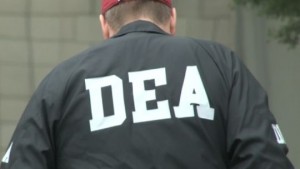
ARIZONA
Rodrigo Paez-Quintero, a Mexican national, has been extradited from Mexico to the United States to face charges related to drug trafficking, officials stated.
Paez-Quintero’s surrender to U.S. authorities after an extradition proceeding in Mexico demonstrates the ongoing cooperation between the United States and Mexico to combat the influx of dangerous drugs, including fentanyl, into the United States.
Paez-Quintero made his initial court appearance Tuesday in the U.S. District Court in Tucson, Arizona. He is presumed innocent unless proven guilty.
“Our fight against international drug traffickers who spread poison into our communities requires all hands on deck,” said Deputy Attorney General Lisa Monaco. “This extradition is yet another example of our partnership with Mexican law enforcement to dismantle deadly cartels and bring drug kingpins to justice.”
 “This indictment alleges coordinated conduct to traffic fentanyl and other illicit drugs into Phoenix,” said U.S. Attorney Gary Restaino for District of Arizona. “Many thanks to our federal, foreign and sovereign tribal partners for their teamwork and dedication.”
“This indictment alleges coordinated conduct to traffic fentanyl and other illicit drugs into Phoenix,” said U.S. Attorney Gary Restaino for District of Arizona. “Many thanks to our federal, foreign and sovereign tribal partners for their teamwork and dedication.”
Paez-Quintero is charged in an indictment unsealed Tuesday with conspiracy to possess and intent to distribute heroin, methamphetamine, and fentanyl, along with multiple counts of possession with intent to distribute these drugs.
 Each count carries a maximum penalty of life in prison and a $10 million fine.
Each count carries a maximum penalty of life in prison and a $10 million fine.
The indictment alleges that Paez-Quintero was involved in at least nine drug trafficking events from the Lukeville Port of Entry, through Ajo, and up to Phoenix in the year before March 2019.
According to various sources, Paez-Quintero is the nephew of jailed Mexican drug kingpin Rafael Caro-Quintero.
 This effort is part of an Organized Crime Drug Enforcement Task Forces (OCDETF) operation. OCDETF identifies, disrupts, and dismantles the highest-level criminal organizations that threaten the United States using a prosecutor-led, intelligence-driven, multi-agency approach. Additional information about the OCDETF Program can be found at https://www.justice.gov/OCDETF.
This effort is part of an Organized Crime Drug Enforcement Task Forces (OCDETF) operation. OCDETF identifies, disrupts, and dismantles the highest-level criminal organizations that threaten the United States using a prosecutor-led, intelligence-driven, multi-agency approach. Additional information about the OCDETF Program can be found at https://www.justice.gov/OCDETF.
The U.S. Attorney’s Office for the District of Arizona is prosecuting the case.
